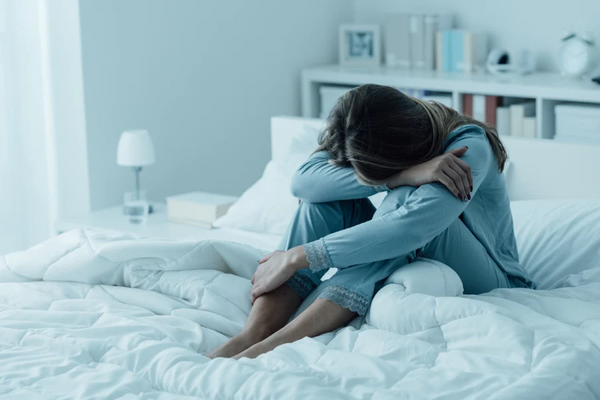
Hormones & Your Heart
Does it feel like your heart is skipping or beating faster than normal?
If you're a woman going through menopause, changing hormone levels can make your heart pound and flutter. A pounding or fluttering heartbeat is called heart palpitations. Palpitations often start when you're in the middle of a hot flash, which is another common menopause symptom.
Heart palpitations are not a common topic of conversation linked with menopause and they are likely to take many menopausal women by surprise. They can occur because of hormone changes during periods, pregnancy, and menopause and are often temporary if addressed appropriately.
Palpitations may be indicative of a number of complaints other than cardiovascular disease. It is important to investigate all possible causes with your doctor so that the cause of the issue is addressed. Speak to your doctor about thyroid dysfunction, low blood sugar levels and anxiety as possible contributing factors other than hormonal shifts that take place especially during perimenopause.
What are the signs of heart palpitations?
Here are the common physical signs of a heart palpitation experienced by perimenopausal women:
- For some women, palpitations occur in association with hot flashes and generalized vasomotor symptoms.
- They can also be called irregular heartbeats or arrhythmia. These are heartbeats that are suddenly more noticeable than regular heartbeats.
- During a palpitation, the heart may pound, flutter, race, beat irregularly or even skip a beat. Palpitations are often short-lived, lasting just a few seconds or, at worse, a few minutes.
- If the palpitations are linked to a shortness of breath, dizziness, or chest discomfort, there will be deeper causes and further investigation is required.
- Menopause heart palpitations can increase heart rates by 8 to 16 beats per minute. Some women, however, have reported much bigger increases, with their heart rates reaching up to 200 beats per minute.
Why are palpitations more frequent during perimenopause?
Heart palpitations are a direct result of lower levels of the female oestrogen hormone which naturally declines in production during the menopause process. Lower levels of oestrogen can lead to an overstimulation of the heart. As a result, such a drop in hormone production can be linked to an increase in both heart rate and frequency in palpitations, as well as non-threatening arrhythmias.
Oestrogen is a hormone that protects the arteries of a woman’s heart in a number of ways, including the reduction of fatty plaque build-up. This means that you are at an increased risk of heart and circulatory disease after menopause occurs. Low oestrogen can increase cholesterol levels, which can further increase your risk of developing heart and circulatory disease.
Is there a link between menopause and heart disease?
One in 100 women experience early menopause, before the age of 40. It puts them at particularly high risk of premature heart and circulatory disease, as well as osteoporosis (a condition that weakens bones).
A decline in the natural hormone oestrogen may be a factor in an increased risk for heart disease among menopausal and post-menopausal women. Oestrogen is believed to have a positive effect on the inner layer of the artery wall, helping to keep blood vessels flexible. That means they can relax and expand to accommodate blood flow.
If you have heart palpitations, you can reduce their frequency and intensity by:
- Reducing caffeine intake by drinking less coffee and other caffeine-heavy drinks such as soda, tea and chocolate
- Cutting back or avoiding stimulants such as cigarettes, caffeine, sugar and alcohol
- Practicing relaxation techniques such as yoga, mindfulness, and breathing exercises
- Staying off diet pills
- Guarding against dehydration which causes an electrolyte imbalance
- Avoiding stress, especially emotional stress which releases adrenaline
- Avoiding MSG in Chinese food, processed foods, canned vegetables, canned soups and processed meats
- Avoiding pseudoephedrine, a stimulant in decongestants
Summary
Although heart palpitations can be disconcerting, remember that most often they are a normal part of aging. Try to remain calm when you have them and focus on your breathing. If you have heart palpitations when you are active, stop what you are doing, sit or lie down and breathe deeply and slowly through your nose and out your mouth. Your normal heart rate should return within a few minutes.
REFERENCES
Jin Oh Lee et al. The Relationship between Menopausal Symptoms and Heart Rate Variability in Middle Aged Women. Korean Journal of Family Medicine. 2011 Jul; 32(5): 299–305.
https://www.ncbi.nlm.nih.gov/pmc/articles/PMC3383141/
Knowlton A and Korzick D. Estrogen and the Female Heart. Molecular and Cellular Endocrinology. 2014 May 25; 389(1-2): 31–39.
https://www.ncbi.nlm.nih.gov/pmc/articles/PMC5709037/






















